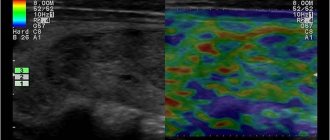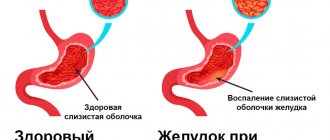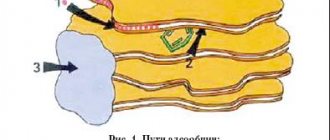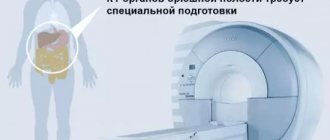12/21/2018 · Pro Psychosomatics · Comments: ·
You are probably also familiar with the situation when the stool becomes liquid, and at the same time there is a frequent urge to have a bowel movement. Many people try to be treated with medication, but this only gives a temporary effect. There are reasons that lie in the psyche. So we’ll talk about them, why the psychosomatics of diarrhea (diarrhea) occurs. Let's share our psychological experience.
It is interesting that diarrhea is not so much an independent disease as a beacon showing that the body has certain malfunctions in the gastrointestinal tract. But even more often, diarrhea develops due to nervousness.
Diarrhea is often accompanied by symptoms such as:
- discomfort in the stomach,
- constant rumbling
- flatulence,
- constant urge to go to the toilet.
When it occurs, the gastrointestinal tract malfunctions and intestinal processes accelerate to a very high level. As a result, he strives to get rid of the contents as soon as possible.
Common causes of diarrhea from the body are:
- rotavirus infections,
- food poisoning,
- chronic disorders of the gastrointestinal tract,
- chemical poisoning,
- taking medications and others.
But at the same time, there are also psychological causes of diarrhea.
Authors such as Louise Hay and Liz Burbo worked on identifying these reasons and compiling special tables. We will express our vision.
What are the causes of psychosomatic diarrhea in adults?
The human psyche is inextricably linked with organs, in particular with the intestines. When stressed, it is the intestines that come under attack.
Why is this happening?
Stress affects the functioning of the brain and nervous system. After which distorted signals are sent to many organs. Such signals also reach the intestinal walls. They begin to contract vigorously, which leads to unpleasant sensations and loose stools.
In addition, the hormone adrenaline, released during stress, provokes spasm of the abdominal muscles.
Diarrhea is usually short-lived. And they stop after a stressful situation. It passes, the functioning of the brain and nervous system is restored, and healthy signals are sent to the intestinal walls. The condition is returning to normal.
But sometimes, with prolonged stress, chronic diarrhea occurs, which can be dangerous even for an adult. When they occur, the body becomes dehydrated and is unable to take all the nutrients from food.
Thus, psychological causes are often at the root of diarrhea. The basic emotion in this case is fear.
Features of the disorder
Psychogenic vomiting is considered such if it is accompanied by symptoms indicating a mental disorder. If you do not seek timely treatment, you may:
- dehydration of the body;
- a sharp jump in intracranial pressure, rupture of capillaries in the brain - stroke;
- the prerequisite for gastroesophageal reflux is the entry of gastric juice into the oral cavity with subsequent entry into the nasopharynx (ENT diseases, dysbacteriosis of the oral cavity);
- imbalance of acidity in the gastrointestinal tract - corrosion of the gastrointestinal mucosa (ulcers, gastritis, diarrhea), stagnation of feces, stretching of the walls of the large intestine with subsequent perforation;
- stretching of the walls of the stomach (pain, inflammation and suppuration in the gastrointestinal tract, development of infectious diseases).
Sudden vomiting due to poisoning should be distinguished from psychogenic: there are no spasms, no uterine sounds, the amount of vomit is significant, food is completely or partially digested, vomiting has a characteristic odor of bile. Treating poisoning with detox medications brings relief.
With psychogenic vomiting, the child does not try to prevent the vomiting process. Vomiting often becomes an integral part of life, a way of attracting attention. If for any reason there is no vomiting, the child experiences discomfort. Definitely, the problem falls within the competence of the psychiatrist and psychotherapist.
Why psychosomatics constantly supports diarrhea in adults
Even in adults, this condition is based on the same fear.
Constant fear is a source of tension and the body’s production of appropriate hormones. Which inevitably affect the body, including the intestines. At the same time, a person may be afraid of constantly repeating situations, but cannot escape from them.
Then the body, entering protection mode, strives to free itself from everything unnecessary. And since the protection mode is constantly on, the metabolic processes of the intestines are accelerated, which leads to frequent bowel movements. This is how chronic diarrhea occurs against a background of fear.
If the human body reacted to a stressful situation in this way, then in the absence of work on the causes of psychosomatic diarrhea, and in subsequent events, there is a high probability of exactly the same reaction.
The connection is simple: situation - emotion - reaction. It is necessary to change the emotion. Because fear arises in response to some situation.
We also noticed another pattern among clients : loose stools occur due to information overload. Now is the age of information, and in order to solve some problem, everyone is puzzled by finding the optimal solution. Yes, but it takes a lot of time and effort to find the answer. There is a feeling of information overdose, and then unpleasant symptoms occur (the body, as it were, strives to free itself from a large amount of knowledge). These cases are becoming more frequent.
Such a search is usually associated with solving financial problems. But against its background there is always some kind of fear.
By the way, it is fears that lie at the root of the psychosomatics of diarrhea in a child. It is necessary to work with the psyche so that situations do not cause this emotion. How to do this?
Abdominal pain associated with pathology of the gastrointestinal tract.
Acute abdomen is a state of catastrophe in the abdomen, characterized by severe pain, barely bearable, constant, aching or frequently recurring. This condition requires immediate medical attention!!! This picture is caused by appendicitis, cholecystitis, pancreatitis, suppuration of an ovarian cyst, bleeding into the abdominal cavity, intestinal obstruction, intussusception, peritonitis, and perforated gastric ulcer.
Alarm signals:
- Severe pain, the child cries and/or squirms;
- Persistence of pain for 2-4 hours, and even more so its increase;
- Feeling unwell, cold sweat, fainting;
- Confusion.
Before the doctor arrives, put the child to bed, do not disturb him or try to give him anything to eat or drink. REMEMBER: you cannot give painkillers (analgin, nurofen, paracetamol, efferalgan), offer the child a heating pad, an ice pack, laxatives, try to give an enema, all this can lead to a worsening of the child’s condition and, as they say, “blur the clinical picture,” thereby delay timely diagnosis and timely prescribed treatment.
Gastritis, stomach ulcer, gastroesophageal reflux. Gastritis is an inflammatory disease of the stomach wall, characterized by abdominal pain and dyspeptic disorders.
The etiological factor is often Helicobacter pylori infection.
Emotional lability (conflicts in the family, school, some kind of disaster, stressful situations), malnutrition, allergic processes predispose to the development of gastritis - all this leads to an increase in the acidity of gastric juice and creates favorable conditions for infection with the microbe Helicobacter pyloricus.
Most often, the pain syndrome is accompanied by dyspeptic disorders (nausea, belching, unstable stool, constipation). An important symptom is liver enlargement associated with stagnation of bile.
There are no symptoms of chronic intoxication and changes in other organs. Physical development corresponds to age. In some children, the main symptoms of the disease are liver enlargement without pain.
A good effect for improving well-being is provided by excluding too fatty, spicy, fried foods from the diet. The same applies to baked goods. Vegetable oil, on the contrary, increases bile secretion and is recommended to be consumed more often. If, in addition to the specified diet, you increase physical activity, this is often enough for recovery and well-being.
If diet and lifestyle changes are not enough, choleretic agents are used. Your doctor should recommend specific medications.
Enteritis, colitis (enterocolitis) is an inflammatory disease of the wall of the small and large intestines, characterized by abdominal pain and diarrhea syndrome.
Chronic colitis and enterocolitis are most often associated with acute infections. In this case, the pathogen that caused the disease has already lost its significance, and the dysfunction of the intestine is supported by those morphological changes that remain after the infection.
Treatment of psychosomatic diarrhea
1 — All tests should be taken by a doctor to determine the pathogenic flora that can support this chronic condition.
Taking medication will provide immediate relief, but there is a high risk that if the medication is stopped, all symptoms will return. However, if this is not psychosomatics, but ordinary food poisoning, then medications will help relieve the acute condition.
2 - We need to work through our fears.
Fears in adults are caused by situations such as:
- communication with some people (many experience fear even when communicating with their own parents),
- running a business and career advancement,
- strained relations,
- psychotraumas coming from childhood, when at the root lies one obvious incident (one should work with it),
- fear of doing something bad and getting punished,
- public speaking,
- fears before an important event (for example, an exam at a driving school).
But one way or another in our work we always end up in a parent-child relationship.
Many fears come from childhood. More than half of them are related to parents: we deserve our mother’s love for our achievements, we do not accept ourselves (remembering comparisons with others in childhood), we have unstable self-esteem (when we don’t know whether you are good or bad).
Against the background of unprocessed childhood psychological traumas, in adulthood we continue to experience the very emotions that we learned back then: resentment, shame, guilt, fears - these are echoes of that time. We are easily wounded by getting into trauma. Therefore, all this can and should be worked on. (You can start with acceptance. Read our article on how to accept yourself here).
How to cure psychosomatic diarrhea
First of all, it is necessary to exclude physiological causes of the disorder. If the frequent urge to defecate is associated specifically with a nervous disorder, it is important for a person to accept this fact and begin to work with it. Only voluntary treatment will be successful.
A psychologist or psychotherapist can help eliminate this disorder, but you can try to find a solution on your own. To do this, you should analyze the causes of diarrhea, record their cases and assess your condition and external factors: “When did this happen? What I did? What were you preparing for? etc.
It is important to understand that stress cannot be completely eliminated from life. It is thanks to him that character is strengthened and a person grows above himself. By immersing himself in the “warm bath” of the information space, a person, on the contrary, worsens his situation and lowers his stress threshold even further. Then any situation, even a non-critical one, can throw him off balance.
During the healing process, it is necessary to work through possible irritants and evaluate their consequences. For example, what happens if I fail this exam? The worst result is that I will be expelled from the university. Or I will still be able to prepare better and answer the questions correctly on the retake. Or I already know the subject well enough and can handle it the first time.
It is important to be realistic about your positive and negative traits and accept the fact that no one is perfect. And stress provides an opportunity to get to know yourself better and improve.
What does it mean to work through a situation psychologically?
When there is fear, a person has a natural desire to free himself from what oppresses him as quickly as possible. And the intestines, along with this desire, do the same.
That is, the body mirrors a person’s desire. This is how the psychosomatics of diarrhea is expressed.
This happens because it is difficult for a person to accept responsibility fully, accept the situation and process it on a psychological level.
Therefore, you need to work with responsibility and acceptance. Accepting means accepting that the outcome may be unfavorable.
As a rule, many are afraid of it and strive to avoid a negative outcome at all costs. Because in this case the person will let someone down, his reputation will suffer, and “something unpleasant” will happen to him. This is what you need to be prepared for psychologically. Then the level of fear will be much lower.
Again, in some cases, if it is a childhood psychological trauma, the issue cannot be resolved on your own. Here you need to work with a psychologist, otherwise the reason will be like a “log in the eye” that constantly makes itself felt.
Sometimes there is an alternation with constipation (we also wrote about this). Now one state, then another.
If a person avoids difficulties, then the life lessons that are given to him along the way are not learned. He seems to be shirking so as not to take these lessons. Because it's scary. What if “there will be a deuce”...
The opposite qualities are courage and acceptance, responsibility and the understanding that by going through any test, a person becomes stronger and wiser. This position is much more profitable.
The psychosomatics of diarrhea (diarrhea), like any gastrointestinal disorder, is completely correctable. By the way, it is often associated with irritable bowel syndrome (be sure to read about this).
When working with fear, the manifestations of diarrhea will disappear, and this will be long-term. And with constant work on your psyche, such symptoms will no longer bother you.
Symptoms of the disease
Nausea of a psychogenic nature is of 3 types: spontaneous - due to sudden stress, periodic - neuroses, constant - a prolonged depressive state. Symptoms:
- Spontaneous - nausea does not depend on food intake. Vomiting is preceded by stomach cramps and headaches are possible. In children 4-7 years old, severe fear is often accompanied by crying.
- Periodic - mainly occurs as a result of the same events or precedes them. The child eats little, increased nervousness, and sudden mood swings are possible.
- Constant – increased sweating and low blood pressure. During vomiting, jumps in intracranial and ocular pressure are possible. Lack of appetite and craving for sour foods. You feel constant weakness, dizziness, and short-term fainting after vomiting is possible.
The list of symptoms of psychogenic disorders may also apply to an already developed mental illness. Thus, sweating and vomiting may indicate autism. If you do not seek treatment from a specialist, the child’s mental well-being will only worsen with age. The list of symptoms is not exhaustive. Other symptoms may also occur: nosebleeds, blurred vision and hearing. A psychogenic disorder promotes the removal of calcium from the body along with vomit - this causes vascular sagging, tachycardia, and hematomas.
In the initial stages, the disease occurs in a latent form. Only an experienced psychiatrist can recognize a mental disorder and prescribe an effective course of treatment.
How to cope with psychosomatics faster
Watch the video from our psychologist with more than 20 years of experience, Olga Kopylova. In it she talks about how psychosomatics is formed:
Two points are important: getting to the exact cause and choosing the right psychological techniques. If you break down all the work into stages, then it would be more advisable to go this way:
- determine the initial situation,
- specify the root emotion (anger, guilt, shame, grief - each has its own),
- select appropriate psychological techniques,
- check the correctness of their implementation,
- adjust the emotion (develop new reactions to provocations).
Moreover, you can take the first step to find the cause today. To do this, take our test:
Take the test
Example : you can read for a long time about constipation - that these are mental blocks, dislike for yourself. But in 95% of cases it appears in a state of choice, in limbo. If you have basic mistrust and anxiety, constipation becomes chronic and worsens during the period of choice.
Consequently, situations with choice will never end, but the attitude towards them can be changed using psychotherapeutic methods.
What do the majority do?
They study the theory, but do not achieve improvement.
The fact is that independent work on your unconscious requires a lot of preparation.
Do you need a specialist?
It will just be faster with him. It’s possible to cope on your own, but only a few can do it and it takes a long time.
In our practice, the terms varied from 1 consultation to a year. Quite common cases are:
- herpes,
- tonsillitis and sore throat,
- neurodermatitis and dermatitis,
- stomach and duodenal ulcers,
- childhood illnesses through parents and others.
If you have psychosomatic diarrhea (diarrhea), and you want to get rid of it as soon as possible, then you can find out about working with us here. I wish you health and psychological comfort!
Discussion: 5 comments
- Galina:
August 29, 2022 at 11:15 amHello, when, after I’m sorry with my dad, I constantly have diarrhea, no love from him, and so on, how can I deal with this?
Answer
Natalia:
January 20, 2022 at 10:51 am
Galina, work through the situation with a psychologist, the relationship with dad.
Answer
September 25, 2022 at 14:10
I have had this problem since the 2000s and even since childhood in the 90s. I don’t know how it all started or how this wrong attitude got into my head. But look, I often have pain or diarrhea when my brain processes a lot of information. For example: 10 tasks in different directions around the city. I myself am not a stupid person, I read a lot of useful things and have no health problems. But they write the reason for diarrhea and abdominal pain (according to psychosomatics) that it is fear, guilt, anger or grief. But it seems to me that 90% is out of nowhere and 10% is most likely an experience. I think that this was established back in the 90s, and since 2015 it seems that I have become less sick and sick because I began to study psychosomatics and myself first of all. And it also seems to me that all my pain associated with my stomach is 99% related to my incorrect perception. And only 1% departure. I have long dreamed of getting rid of this “program” in my head that prevents me from relaxing and living freely without pain. By the way, as an experiment, I tried to live alone in an apartment and communicated with few people in quarantine for 2 months. and the effect amazed me. I became healthier and felt better. The only drawback was this feeling of loneliness and boredom in moments...
Answer
February 20, 2022 at 18:05
Hello! I have been having a panic attack for 3 months now and have diarrhea. What should I do? Help me.
Answer
June 4, 2022 at 05:17 pm
Diarrhea every time I'm at my parents' house. Bad relationship since childhood.
Answer
Aggressive child
Most often, increased aggressiveness in a child has very specific reasons. First of all, it is important to clearly identify which area they belong to, and what kind of help will bring the most effective result: medical or psychological.
It is generally accepted that aggression is inherent in humans by nature itself, as one of the aspects of survival. From the moment of birth until old age, people are characterized by reactive aggression - when there is a threat or danger to life, freedom or their property. With envy, jealousy or revenge - feelings that are inherent in any person, regardless of gender and age. This type of aggression still exists today. We all, to one degree or another, struggle for life at any time.
Both boys and girls try to find out who is stronger, faster, more dexterous as soon as they begin to communicate with their peers. From time immemorial, various competitions or fights existed between men. In the first case, so-called play aggression helped. It is not destructive in nature and was used to demonstrate skill and dexterity, without hatred or destruction. It is this type of aggression that children constantly demonstrate, starting from kindergarten age. Moreover, regardless of gender.
One cannot but agree that a child’s play aggression is as normal as it is widespread. Willingness to compete and perseverance in everyday struggle are not the worst qualities, especially for a boy.
All other types of aggression are a negative phenomenon, and, often, depending on the character of the child, they can take expanded and even exaggerated forms.
Types of childhood aggression:
- Direct aggression. When it is directed at someone specific who causes concern and provokes the manifestation of negative feelings.
- Indirect aggression. Most often it is aimed at objects that are accessible and safe for splashing out negative emotions. For example, on children who are younger in age or physically weaker, or on soft-spoken relatives and grandmothers who feel sorry for their grandchildren.
- Physical aggression – when a child fights or a child bites.
- Verbal aggression – calling names, threatening and shouting.
- Auto-aggression is one of the most severe forms of aggression in children. May be accompanied by verbal self-deprecation, scratching of the skin, and self-harm.
Causes of increased aggressiveness in children
Increased aggression, like many other common childhood problems, can come from psychological aspects, such as family relationships, as well as from medical aspects.
In terms of psychological aspects, aggression occurs when a child has a heightened sense of danger, leading to aggression on the part of the child as a means of defense and reflection of his surrounding world. In his own family or in the social environment: in kindergarten or at school. Aggressive behavior in children can be provoked by a lack of parental love, parents’ reluctance to devote time to them and delve into their problems, disrespect for the child’s personality, and lack of support. Or the use of strict authoritarian upbringing together with an unfavorable emotional atmosphere in the family or overprotection. In these cases, increased aggressiveness is essentially a cry for help, fear and distrust of the world. And is used as personal protection.
If the medical aspect is considered, then increased aggressiveness is quite often characteristic of children with increased intracranial pressure. Increased intracranial pressure in a child may be a consequence of a birth injury or hypoxia, or some acquired condition (for example, asphyxia).
Also, increased aggressiveness can be a consequence of more serious medical problems, including autistic disorders, childhood mental disorders, including schizophrenia. But, fortunately, this happens quite rarely.
Before taking any action against aggression, it is first necessary to understand the cause of the problem. To do this, the child is invited to a psychologist, neurologist, psychiatrist, often to a consultation - if we are talking about serious cases of aggressive behavior - so that specialists can outline the boundaries of psychological and medical problems and propose measures that will bring a positive result.
When should you consult a psychotherapist for stomach and intestinal psychosomatics?
1. You have been treated by a gastroenterologist for a long time and there are no results - in stressful situations the ulcer and colitis return
2. You feel that psychosomatic diseases of the stomach and intestines are your experiences and stress, but you don’t understand which ones and don’t know how to cope with them
3. If digestion is disturbed and you are bothered by pain, bloating, diarrhea or cramps in the intestines and stomach
4. If you smoke and cannot quit, but want to quit smoking
5. If your mood is bad and depressed for more than a month
6. If you, along with stomach and intestinal symptoms - pain, indigestion, indigestion, feel tired or tense, have poor sleep or insomnia
If you follow the modern view of DU and PU, then you should contact a psychotherapist immediately after visiting a gastroenterologist and diagnosing an endoscopy
What will the psychotherapist do, how will he treat the psychosomatics of the digestive tract with you?
The focus will be on identifying all the stressors that have an impact. Stress from dysfunctional relationships in the family, from conflicts at work - this is precisely the area of psychotherapy. A therapist can work with you to address your behavior and relationship issues. Internal conflicts are also stressful, especially if a person cannot make an important decision for a long time.
Methods of psychological self-regulation are a special training; you will be taught to do the exercises yourself, using them precisely to reduce the body’s response to stress.
Yoga, oriental holistic arts, martial arts, and there are also Russian national practices are of great benefit in tuning the body to the right anti-stress wave.










